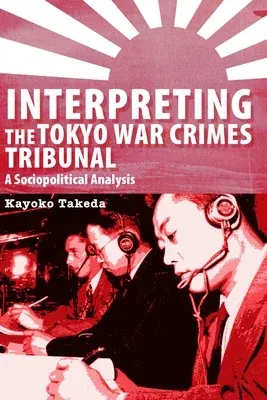Kayoko Takeda
(Author)Interpreting the Tokyo War Crimes Trial: A Sociopolitical AnalysisPaperback, 11 September 2010

Qty
1
Turbo
Ships in 2 - 3 days
In Stock
Free Delivery
Cash on Delivery
15 Days
Free Returns
Secure Checkout

Part of Series
Perspectives on Translation
Print Length
192 pages
Language
English
Publisher
University of Ottawa Press
Date Published
11 Sep 2010
ISBN-10
0776607294
ISBN-13
9780776607290
Description
Product Details
Author:
Book Format:
Paperback
Country of Origin:
US
Date Published:
11 September 2010
Dimensions:
20.47 x
16.89 x
1.24 cm
ISBN-10:
0776607294
ISBN-13:
9780776607290
Language:
English
Location:
Ottawa
Pages:
192
Publisher:
Series:
Weight:
240.4 gm